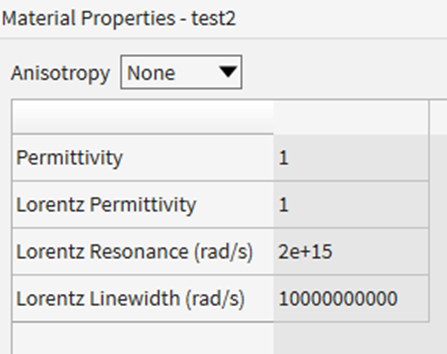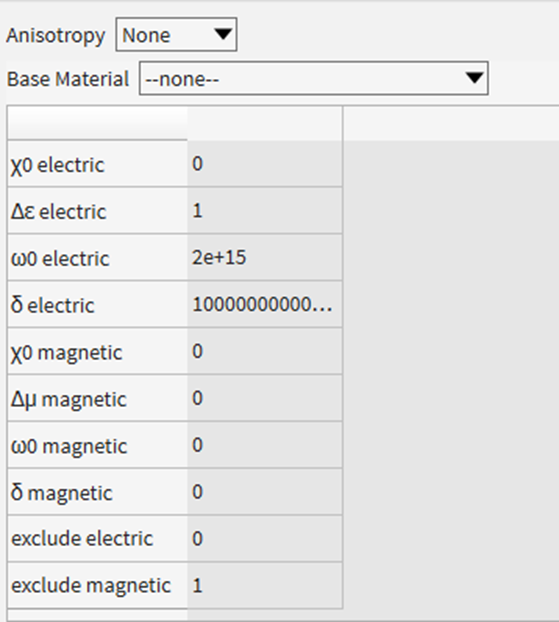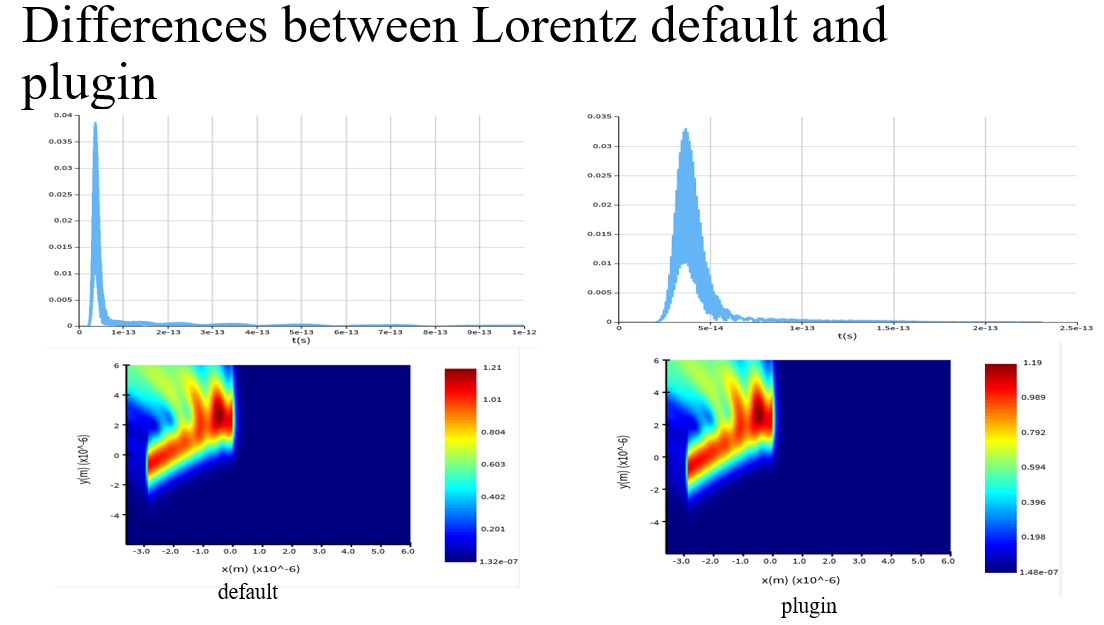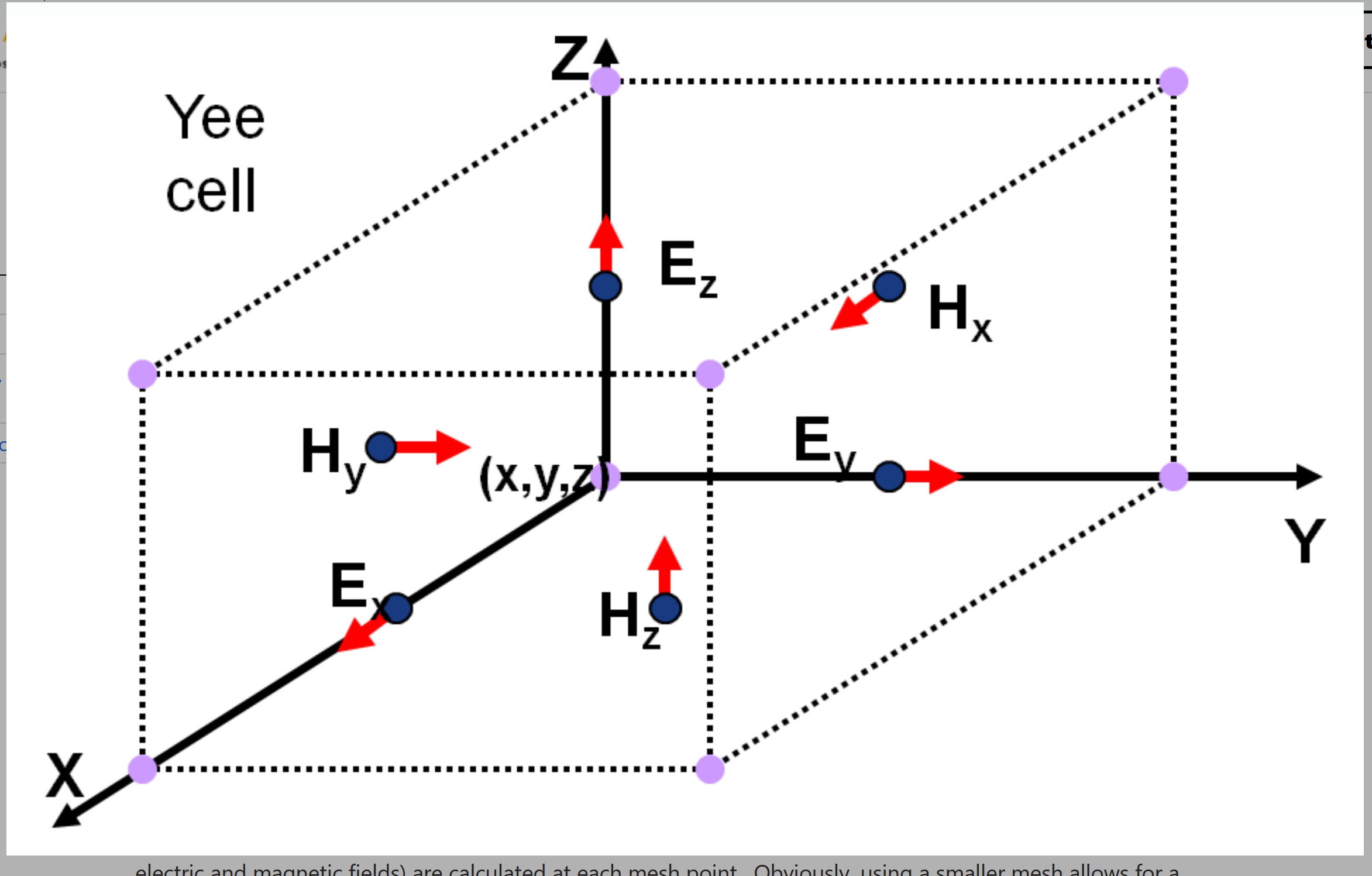-
-
July 9, 2024 at 1:22 pm
Ahmed Salama
SubscriberHi,
I need to make a parameter in Drude model dependent on the incoming intensity. In order to do so, I implemnted Drude model as a plugin material model in Lumeircal VarFDTD. I followed the same steps as Lorentez example plugin model on Lumerical website. The problem is when I compared between the default Drude model (Plamsa) and the pluign Drude model that I impleamted, there was differences, as shown in the following figure.
I have two point time monitors positioned at the center of the beginning and end for the input (blue) and the output (green), respectivly. I revised my equations several times for the plugin model and they are correct. Is it common for plugin models to give different results than the default models for some structures?
For example, I compared between two Lorenz model. The first one is the default Lorenz model with the following parameters
The other one is the plugin electric magnetic Lorentz model which is provided by Lumerical with the following parameters
I did the simulation for both cases for the following Lumerical example
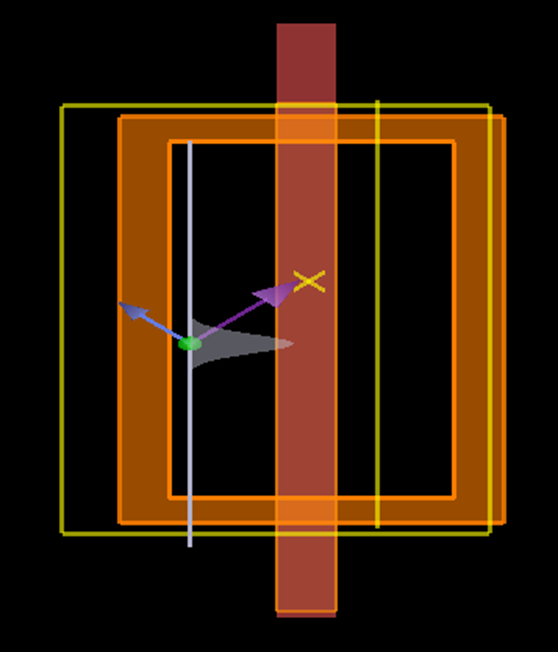
But there was a difference in the results as the following figure.
The difference is in the intensity of the field, but it is not big.
Thanks in advance!
-
July 9, 2024 at 5:22 pm
Guilin Sun
Ansys EmployeeI would agree to large extent that the plugin is less accurate than the standard FDTD: the plugin uses simple stair case approximation at the material interface, whereas the standard FDTD can be more accurate. Please refer to https://optics.ansys.com/hc/en-us/articles/360034915213-Flexible-Material-Plugin-Framework
The signal is not that important, as long as your result is in frequency-domain. As your images show the intensity is quite similar, which indicates that your code is correct.
You may try finer mesh size and see if it improves. In addition, thicker slab can be better than the thinner slab as the interface cells are fewer for thick slab.
Please also refer to the following Yee mesh to understand why the material interface is important:
-
- The topic ‘Implementing Drude model as a plugin’ is closed to new replies.



-
3139
-
1007
-
918
-
858
-
792

© 2025 Copyright ANSYS, Inc. All rights reserved.


